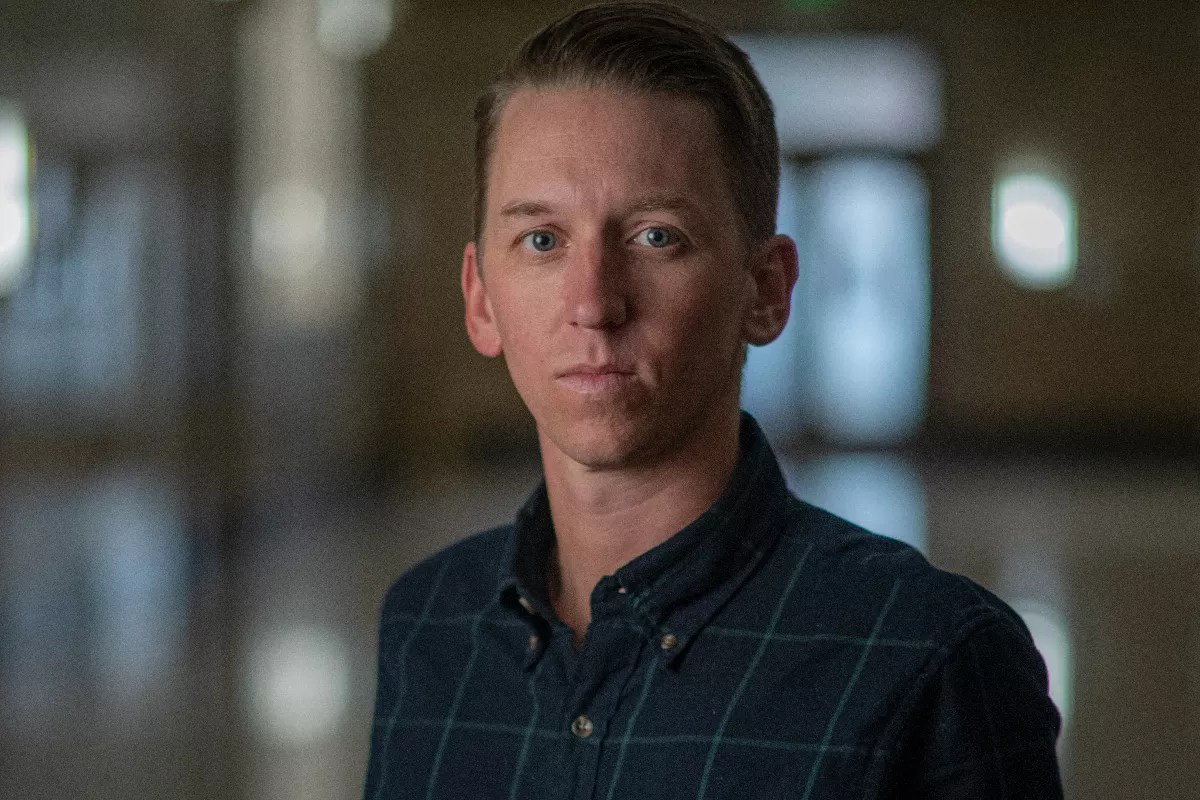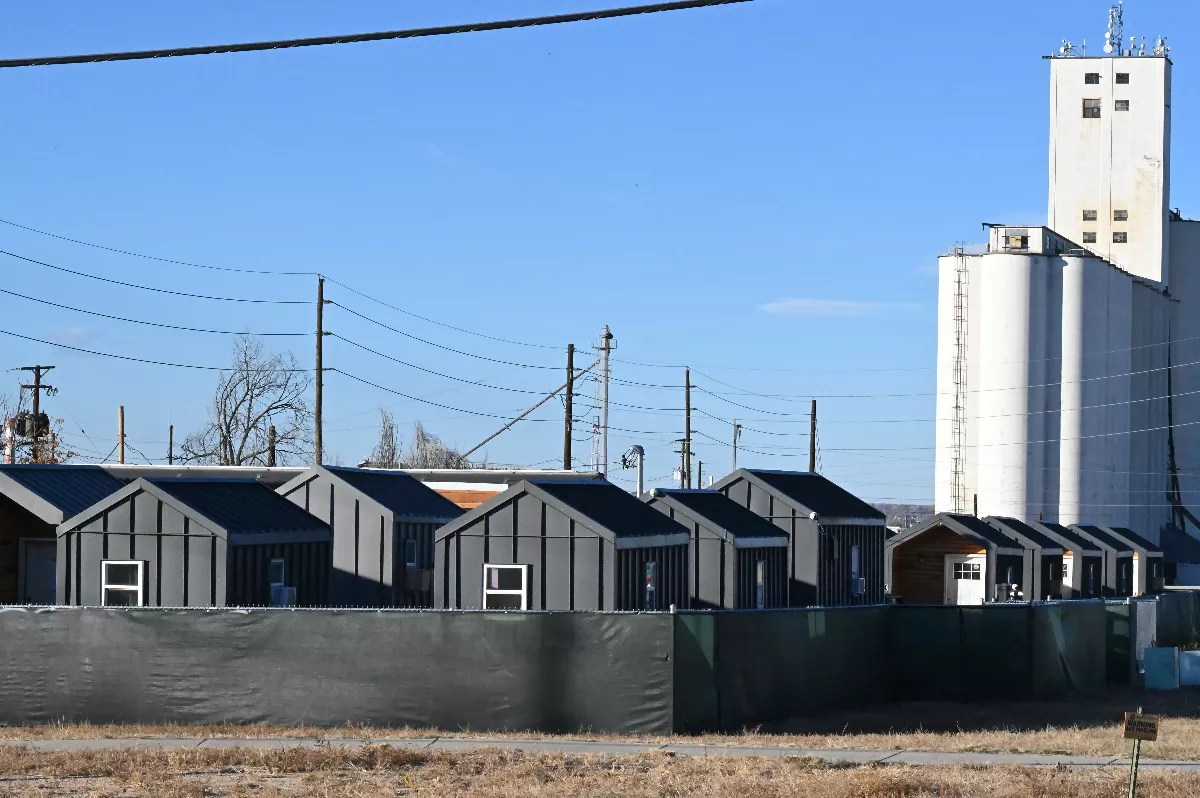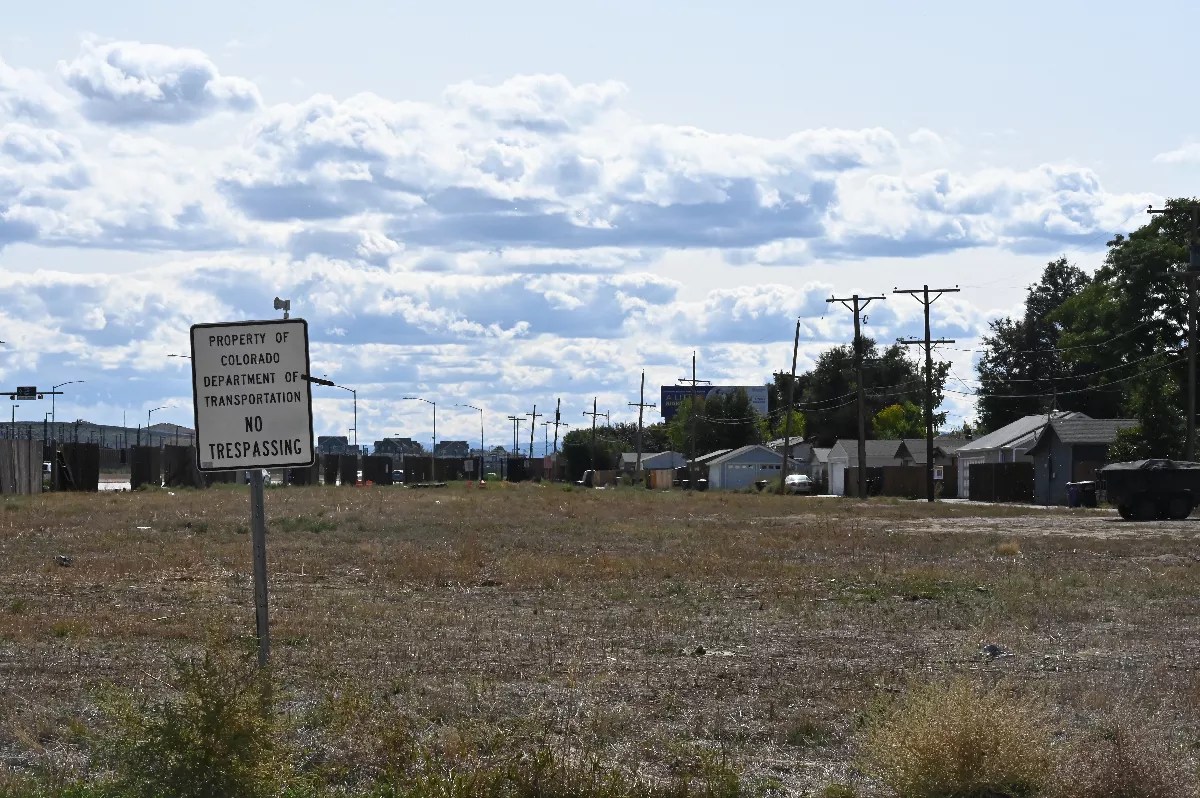
Evan Semón

Audio By Carbonatix
Denver City Councilwoman Amanda Sawyer had a conversation with Mayor Mike Johnston this summer, on the day he declared homelessness an official citywide emergency and kicked off his House1000 plan to house 1,000 people by 2024, which she still thinks about today.
“At some point, there is going to be a moment when you are going to have to choose between doing this right and doing this fast,” Sawyer remembered telling him, recounting their talk at a council Safety, Housing, Education and Homelessness Committee meeting on Wednesday, November 15.
“Which one are you going to choose?” she said she asked. “He said, ‘I’ll do it right,’ and I appreciate that.”
Sawyer brought up the anecdote as a way to explain her motion to delay a vote on a $3.8 million contract with Colorado Village Collaborative. The contract will put CVC in charge of the largest micro-community planned by Johnston, which is already being constructed in Denver’s Overland neighborhood at 2301 South Santa Fe Drive. It will host 120 homeless residents by 2024.
Sawyer and others on the committee are worried about complaints coming from Overland residents; for her, this is “that moment where we are doing it fast and not right,” she said at the meeting.
The seven-person Safety, Housing, Education and Homelessness Committee voted 6-0 to postpone a vote on the contract with CVC until the November 29 committee meeting. Councilwoman Stacie Gilmore was absent.
Cole Chandler, co-founder of CVC and senior advisor to Johnston on homelessness, couldn’t help but feel disappointed by the postponement. “I was disappointed the contract was delayed,” Chandler tells Westword. “We really feel like we made a great-faith effort to compromise with the neighborhood.”
Nonetheless, Sawyer – who represents District 5, one of a handful of council districts that’s never been slated to host a micro-community – simply told Chandler, “We need a little bit of time to pause on this.”
The former CVC head left the organization in August 2022 to become the director of homelessness initiatives for the Colorado Department of Human Services. He stopped working for the state in July and joined Johnston’s Homelessness Resolution team, becoming the highest-paid member, with a salary of $160,000 a year.
Cole tells Westword that he receives no earnings or income from his former organization, which CVC confirms.
Dede de Percin, the group’s executive director, describes the relationship her organization has with its former founder as the same as it would have with any group working in housing and homelessness. Chandler agrees with that sentiment “1,000 percent,” he says.
“I didn’t know Dede before she took over as the head of CVC, and I communicate with her just like I communicate with the CEO of any of our service providers,” he says. “I reach out, and we talk about challenges that they have, and we talk about how to advance our goals of how to get people housed together, but very much like any other contractor.”

Colorado Village Collaborative, which runs Beloved Village at 4201 Monroe Street, has been tapped to run the largest Denver micro-community.
Bennito L. Kelty
None of the committee members at Wednesday’s meeting brought up accusations by former and current CVC staff and residents that drug use, sex and intimidation are common at the nonprofit’s Tiny Home Villages and Safe Open Spaces sites, but several people have made such claims to Westword.
“At the city, we hear complaints all the time about various service providers,” Chandler comments. “Obviously, it’s a source of concern. We want everyone who’s living under our care, living in a contracted city facility, to be taken care of. We want people to thrive. We want people to be on the path to housing, and this is a conversation we’re actively having with city council.”
The city’s lead homelessness advisor insists that he and council are constantly looking for ways to “hold shelter providers accountable.” According to Chandler, “That’s an important conversation to [the city], so when we see that there are residents that aren’t happy with their experience, that matters to us.”
However, Chandler also knows that “there are two sides to every story,” he says. “If I were hearing all those things” that gave CVC a negative image, “if I was their leadership, I would be concerned. I would want to know if there’s particular people that that’s being directed towards, if that’s coming from one or two places or what’s the source of that, but that is not my organization. I do not work there, and [CVC] scored high in their [request for proposal] because of what [CVC] wrote.”
On Wednesday, CVC brought two residents who’d gone through their programs to the committee meeting, where they gave positive feedback about the nonprofit.
CVC resident Randall Jones described the shelter space where he lives as “a loving environment with people that are all in on trying to cure this problem that we have with homelessness. They care about your feelings and what you’re going through. They’re sympathetic with your struggle.” Another resident, who went by the name Easy, called CVC “a godsend.”
Chandler, 35, was one of three people on the scoring committee who evaluated the service providers that submitted a request for proposal to earn a contract with the city to run a micro-community. “Cole is not the sole decision-maker,” says a spokesperson with the city’s Homelessness Resolution Operations Center. “Cole sought an opinion from the Denver Board of Ethics” during the process, the rep adds.
“We had sixteen different applications to that RFP,” Chandler says. “Some of them bid for different aspects of it, so it was very broad. Some bid just to provide employment services, some bid just to provide behavioral health services, some bid just to provide operation staffing.”
Chandler scored those service providers based on “all kinds of stuff,” he says, and for any provider to win the bid, it had to score well with the other two on the committee as well.
Overland residents have protested the idea of hosting the largest micro-community, with District 7 Councilwoman Flor Alvidrez taking on their cause – both in a letter sent to Johnston last week and during Wednesday’s committee meeting, telling Chandler that she feels like her constituents have been dealt “a slap in the face” by the city.
“When I see other micro-sites get canceled and canceled, and all I’m asking for is a little bit of compromise, it’s – I’m trying to think of a better way to put this, but – it’s a slap in the face to residents of Overland,” she said. “Their voices don’t matter and they can’t even get a compromise.”
Chandler points out that the micro-community being constructed on South Santa Fe was shrunk to 120 units from 155 single-occupancy units, some of which “could have been dual-occupancy, so there could have easily been over 200 people living at this site.” Then, in response to conversations with Alvidrez, the mayor also promised to only put in sixty residents this year and wait thirty days and check with the neighborhood before putting in the remaining thirty.

The City of Denver is building a micro-community for 120 homeless individuals in a state-owned field next to the residents of the Overland neighborhood.
Bennito L. Kelty
“Sixty units just for the rest of this year is just kind of a joke,” Alvidrez said. “I mean, it’s a month. So I don’t feel like it’s a really strong commitment.”
Still, Chandler maintains that “we feel like we worked hard to compromise, and so I was disappointed that it didn’t move through.” He adds that he does understand, though, that “Alvidrez has the most at stake – it’s her district – so we’re doing our best to communicate with her and the neighborhood and clear up any concerns or confusion ahead of the next committee date.”
On Friday, November 17, Johnston met with Alvidrez while Chandler was slated to speak with Overland residents in hopes of strengthening the CVC contract’s chances of making it through the committee the second time around.
Sawyer has said that she’s willing to vote for the contract as part of a consent agenda – an easier way to get items passed. The only change she’s suggested has been having CVC sign a memorandum of understanding instead of a good neighbor agreement. The difference would be that an MOU is often more legally binding than a GNA.
De Percin said that she’s willing to sign an MOU, but has noted that any agreement can’t be signed until council approves a contract. Sawyer also tried to pressure Chandler into committing to reducing the number of units slated for the site to sixty, but he declined on Wednesday, telling the committee: “We will not commit to reducing it to sixty units forever and always.”
According to Chandler, the zoning permit for the site has already been issued to have 120 units at the location.
The Johnston administration still expects to house 1,000 people by the start of 2024, Chandler says. Most of that housing will be done in December, with “move-ins all throughout the month, moving hundreds of people indoors,” he adds.
“We’re gearing up for that,” Chandler says.
So far, the city has housed 275 people since July 17 as part of the House1000 program.
With more than 700 individuals still needing to be housed to meet the mayor’s goal, Chandler is “mostly feeling excited about the last six and half weeks of the year,” he says.
“We feel confident in that, and frankly, really excited about that,” he tells Westword. “December is going to be an awesome month for our city and for people on the streets in our city.”